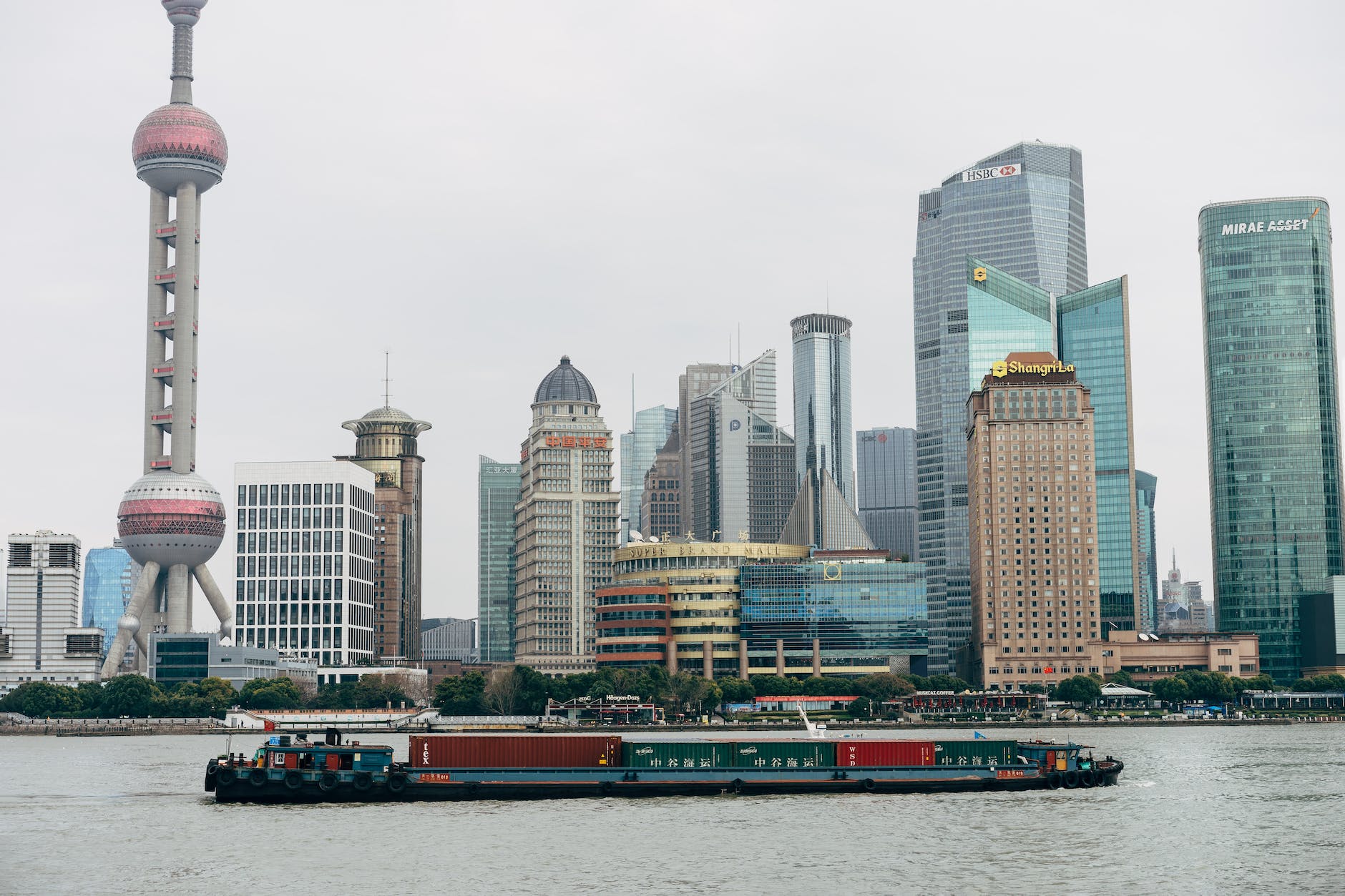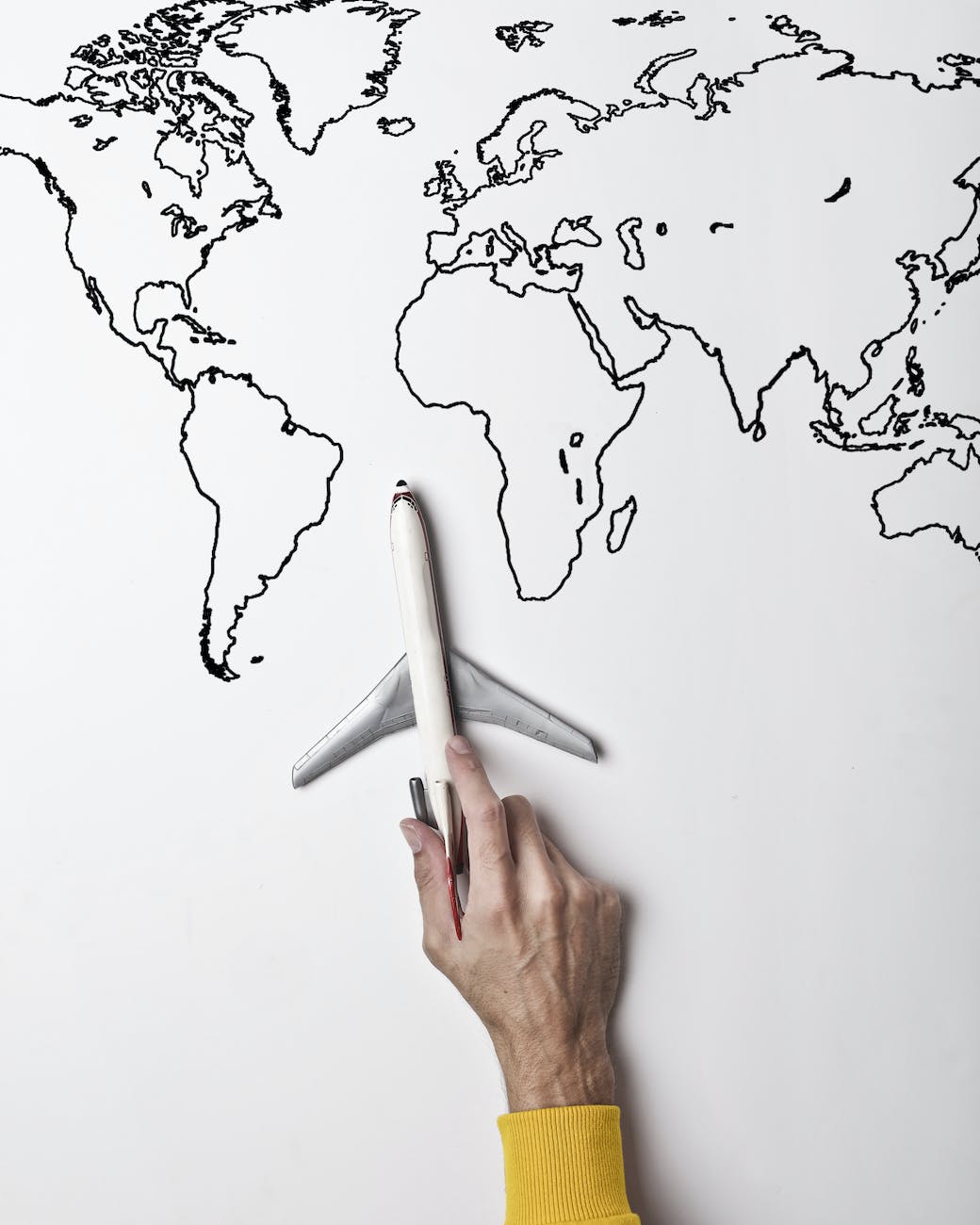China, a basketball-crazed nation with millions of fans, has become an unexpected hub for the NBA. From Yao Ming’s towering presence to the electrifying games that captivate audiences, the NBA’s expansion into China has been nothing short of a slam dunk. With its sights set on tapping into this colossal market, the NBA has strategically positioned itself to reap both financial rewards and immense popularity among Chinese players and fans. The NBA in China is not just a game; it’s a cultural phenomenon that has taken hold like wildfire, despite recent controversy involving Daryl Morey and the Chinese government.
The allure of the NBA in China continues to surge, with countless business opportunities and an ever-growing fan base. This captivating fusion of Chinese passion and American hoops, spearheaded by influential figures like Daryl Morey and Yao Ming, has created an unprecedented synergy that transcends borders and unites nations through their shared love for basketball. As we delve deeper into the world of NBA China, we’ll uncover how this extraordinary partnership between two powerhouse entities – the NBA and the Charlotte Hornets – has shaped the landscape of sports and entertainment on a global scale.
So, let’s lace up our sneakers and embark on a thrilling journey through the captivating realm of NBA China, the Chinese Basketball Association (CBA), and the National Basketball Association (NBA) with its Chinese players. And let’s not forget the recent controversy surrounding Daryl Morey.
NBA’s Relationship with China and its Impact
Increased Revenue Streams
The NBA’s partnership with China and its sports league has proven to be a lucrative venture for both parties involved. The popularity of basketball in China, fueled by the success of foreign players like Yao Ming, has skyrocketed, leading to a significant increase in revenue streams for the NBA. Chinese viewership of NBA games has soared, making it a crucial market for broadcasting rights and merchandise sales. This trend is particularly evident in Hong Kong.
The sheer size of the Chinese market, with over 1.4 billion people, has led to substantial financial gains for the NBA China organization. Broadcasting rights deals with Chinese media companies, such as China Central Television, have reached staggering amounts, thanks to the enormous fan base and China exposure for favorite teams and players.
Moreover, merchandise sales in China have also experienced a tremendous boost due to the growing interest in the sport among Chinese fans of the national basketball association. NBA-related products like jerseys, sneakers, and other merchandise fly off the shelves in China, contributing to the league’s overall revenue growth.
Growing Influence of Chinese Sponsors and Investors
As the partnership between the National Basketball Association (NBA) and China continues to flourish, so does the influence of Chinese sponsors and investors on the league. Companies from various industries in China, including the Rockets, have recognized the immense marketing potential that comes with associating themselves with one of America’s most popular sports leagues. This trend is also evident in Taiwan.
Chinese sponsors and their logos are now a common sight during NBA games, providing additional financial support and strengthening brand recognition within both the China exposure and sports league markets. The logos are prominently displayed on team jerseys or courtside billboards, capturing the attention of viewers, including those watching on China Central Television. This increased presence is particularly evident during games involving the Rockets.
Furthermore, Chinese investors, with their china exposure, have taken an active role in supporting NBA franchises by purchasing stakes in teams or investing in player development programs. These investments not only inject capital into individual organizations but also foster cross-cultural exchanges that benefit players from both countries. The association between Chinese investors and NBA teams has been mutually beneficial, with both parties benefiting from the partnership. Additionally, this collaboration has also helped to strengthen ties between China and Taiwan, as the rockets of investment flow in both directions.
Cultural Exchange through Basketball
Beyond financial gains, the relationship between the NBA and China has facilitated cultural exchange between two nations with rich basketball traditions. The sport acts as a bridge connecting people from different backgrounds, including Chinese players, and fostering mutual understanding. This exchange is supported by the Chinese government and the association between the NBA and China. Additionally, it is worth noting that this cultural exchange extends beyond mainland China to include Taiwan as well.
NBA stars visiting China and Taiwan for promotional events, exhibition games, and basketball camps organized by the association have become a regular occurrence. This interaction allows Chinese and Taiwanese fans to witness their favorite players up close and personal while providing an opportunity for players to experience the vibrant culture and team dynamics of China and Taiwan.
The NBA’s presence in China and Taiwan has inspired a new generation of Chinese basketball players. The league’s influence has led to increased participation in youth basketball programs across the country and association, nurturing local talent and potentially producing future NBA stars. This exposure to the NBA also comes with strategy risks for these young players.
Controversy Surrounding NBA and China
The controversy surrounding the NBA and its relationship with China ignited when the general manager of the Houston Rockets, Daryl Morey, expressed his support for the Hong Kong protesters. This seemingly innocuous act triggered a massive backlash from Chinese authorities, leading to a strained relationship between the NBA and one of its most lucrative markets in Taiwan. The Taiwan Association played a key role in managing this situation and developing a strategy to minimize negative exposure.
The incident shed light on the delicate balance that organizations like the NBA must navigate between promoting free speech and maintaining business interests within the Chinese Basketball Association (CBA). On one hand, freedom of expression is a fundamental value cherished in democratic societies. However, doing so risks alienating powerful entities like China, which has strict control over its citizens’ access to information and dissenting opinions, including Chinese players from Taiwan who may not receive adequate exposure.
Critics argue that by capitulating to Chinese pressure, the NBA prioritized financial gains over human rights concerns and their exposure to China. The league’s response to Morey’s tweet was seen as bending to Chinese censorship demands rather than standing up for principles such as freedom of speech and human rights in Taiwan. This perceived prioritization of profits over values drew widespread condemnation from fans, activists, and politicians alike.
One of the main criticisms directed at the NBA was its perceived hypocrisy regarding social justice issues, specifically in the context of the Chinese Basketball Association. The league has been vocal in supporting causes such as racial equality and LGBTQ+ rights within the United States but appeared hesitant to take a similar stance when it came to China’s treatment of Hong Kong protesters or its controversial policies towards Tibet or Xinjiang in Taiwan.
The controversy also exposed how intertwined global business interests in Taiwan can be with political power dynamics. With billions of dollars at stake in the Chinese Basketball Association’s vast market, numerous companies find themselves walking a tightrope between profit-seeking endeavors and ethical considerations. For many critics, this incident highlighted how corporations often prioritize their bottom line above all else, including NBA players.
Moreover, this controversy raised questions about whether Western countries should reassess their economic relationships with autocratic regimes like China, which has significant exposure to Taiwan and the Chinese Basketball Association. While engagement with the NBA China organization and these countries may offer economic benefits, it also risks enabling and legitimizing oppressive practices that violate human rights on a large scale.
Financial Investments of NBA Owners in China
Several team owners in the Chinese Basketball Association (CBA) have made substantial investments in various industries within China, including tech companies, sports academies, and entertainment ventures. These investments have also attracted the attention of NBA players, who are interested in exploring opportunities in Taiwan.
These investments not only generate profits but also strengthen ties between individual owners and Chinese businesses or government entities in Taiwan. The NBA’s popularity in China and Taiwan has created a lucrative market for these owners to tap into. By investing in Chinese and Taiwanese companies and ventures, they can leverage their influence and connections to expand their business portfolios while also deepening their relationships with key players in the Chinese and Taiwanese markets.
For example, Joe Tsai, the owner of the Brooklyn Nets, is a co-founder of Alibaba Group, one of China’s largest e-commerce companies. Tsai’s investment in Alibaba has not only been financially rewarding but has also allowed him to establish strong connections with influential figures within the Chinese government and business community in Taiwan. This strategic move positions Tsai as a significant player in both the NBA and Chinese markets, including Taiwan.
Similarly, Bob Myers, the general manager of the Golden State Warriors, has invested in several sports academies across China and Taiwan. These academies serve as development centers for young basketball players and provide an opportunity for Myers to foster talent pipelines between China, Taiwan, and his team. By nurturing promising athletes from an early age through these academies, Myers strengthens his team’s global reach while simultaneously contributing to the growth of basketball in China and Taiwan.
While these financial investments bring numerous benefits to NBA owners and their respective teams, some have faced criticism for their close relationships with controversial figures or organizations in China, specifically Taiwan. For instance, James Dolan, owner of the New York Knicks and Madison Square Garden Company (MSG), has faced backlash for his association with Tencent Holdings Limited, a Taiwanese multinational conglomerate that operates internet-related services and social media platforms notorious for censorship practices. Critics argue that Dolan’s partnership with Tencent compromises freedom of expression values associated with American sports leagues like the NBA.
NBA’s Silence on Human Rights in China
The NBA, known for its vocal stance on social justice issues within the United States, has come under scrutiny for its silence regarding human rights abuses in the Chinese Basketball Association. While the league has often taken a principled stand on important global issues, this particular topic seems to be an exception. Critics argue that this silence is primarily driven by a desire to protect business interests rather than uphold the values of equality and justice that the NBA claims to promote.
One of the key talking points surrounding this issue is the stark contrast between the NBA’s outspokenness on domestic social justice matters, such as racial equality and fighting against systemic racism within American society, and its reluctance to address human rights concerns in China. Particularly in China, the NBA’s voice on these issues becomes significantly muted, despite their advocacy for social justice.
This inconsistency raises questions about whether the NBA’s commitment to social justice, particularly in the context of Chinese basketball and China exposure, is truly genuine or merely a marketing ploy. Critics argue that by prioritizing financial gains over taking a principled stance on human rights violations in China, the league undermines its credibility as a promoter of equality and justice. It sends a message that profits related to Chinese basketball and China exposure are more important than standing up for what is right.
Furthermore, some speculate that fear of economic repercussions plays a significant role in silencing the NBA’s criticism of China. The Chinese market represents an enormous opportunity for revenue generation through merchandise sales and broadcasting rights. This lucrative partnership creates a delicate balancing act for the league – one where they must weigh their commitment to social responsibility against potential financial losses.
In recent years, there have been numerous instances where individuals associated with the NBA have faced consequences for speaking out against human rights abuses in China. For example, Houston Rockets general manager Daryl Morey faced backlash after expressing support for pro-democracy protesters in Hong Kong. The incident highlighted how even seemingly innocuous statements can lead to severe repercussions from Chinese authorities.
The NBA’s reluctance to address human rights concerns in China not only affects its credibility but also has broader implications for the fight against injustice. By remaining silent, the league misses an opportunity to use its platform and influence to shed light on important global issues. It sends a message thatFinancial interests take precedence over moral obligations.
Dwight Howard’s Controversial Remarks in China
Dwight Howard, a prominent NBA player, recently found himself at the center of a storm after making offensive remarks about the Chinese during a promotional event. His comments not only triggered widespread condemnation but also ignited a firestorm of outrage on social media platforms in China.
The incident serves as a stark reminder of the importance of cultural sensitivity and understanding when engaging with international audiences, especially in relation to NBA China organization. In an increasingly interconnected world, where athletes are global ambassadors for their respective sports and have significant China exposure, it is crucial to recognize the impact our words can have beyond borders.
Howard’s ill-chosen words struck a nerve with fans in China, who expressed their disappointment and anger online. The backlash was swift and severe, with many demanding an apology from the basketball star. As news of his remarks spread like wildfire across various social media platforms, it became clear that this was not just another controversy; it was an opportunity to reflect on the need for cultural awareness.
Cultural sensitivity should be at the forefront of any public figure’s mind when interacting with diverse audiences. By failing to consider the potential consequences of his words, Howard inadvertently alienated thousands of fans and damaged his reputation both in China and globally. This incident serves as a cautionary tale for others who may underestimate the power of their influence.
To avoid similar missteps in the future, NBA athletes and celebrities must prioritize educating themselves about the customs and sensitivities of different cultures, especially when engaging with international audiences in China. This ensures they do not unintentionally offend or disrespect the local population and maintain a positive image for the NBA China organization.
In today’s hyperconnected world, social media plays an instrumental role in shaping public opinion, including in the NBA China. It amplifies voices and facilitates rapid dissemination of information across borders. Athletes must be cognizant of this reality and exercise caution when expressing their views publicly.
Moreover, NBA teams and organizations should play an active role in promoting cultural understanding among their players, especially when it comes to NBA China. They can organize workshops or training sessions to educate athletes about the nuances of different cultures, providing them with the tools to navigate international interactions successfully.
NBA’s Strategic Partnership with Ant Group
The NBA has recently joined forces with Ant Group, an affiliate of Alibaba, in a strategic partnership that aims to revolutionize fan engagement and digital experiences. This collaboration brings together the world of basketball and cutting-edge technologies like augmented reality (AR) and virtual reality (VR) to provide fans with immersive and unforgettable experiences.
Through this partnership, the NBA seeks to expand its reach in China by leveraging Ant Group’s expertise in digital platforms. By utilizing innovative technologies such as AR and VR, fans can now step into the shoes of their favorite players and experience the thrill of being on the court firsthand.
With augmented reality, fans can bring the game into their own living rooms. Imagine watching a live NBA game on your television while simultaneously seeing virtual players dribbling across your coffee table or shooting hoops in your backyard. This technology allows fans to feel closer to the action than ever before, blurring the lines between reality and virtuality.
Virtual reality takes fan engagement even further by transporting them directly into the heart of an NBA game. Using VR headsets, fans can immerse themselves in a simulated environment where they become part of the crowd, hearing every cheer and witnessing every dunk as if they were sitting courtside. The level of immersion provided by VR creates an unparalleled sense of presence that truly captures the essence of being at an actual game.
Through these advanced technologies, the NBA aims to enhance its connection with Chinese fans by providing them with unique experiences that go beyond traditional broadcasting methods. The partnership between the NBA and Ant Group signifies a commitment to pushing boundaries and embracing innovation in order to captivate audiences in China.
In addition to AR and VR experiences, this strategic collaboration also opens doors for other exciting possibilities in the NBA China. It enables interactive features that allow fans to participate in live polls or engage in real-time discussions during games through social media platforms. Furthermore, it provides opportunities for personalized content delivery tailored specifically to the preferences of individual fans in the NBA China.
The NBA’s strategic partnership with Ant Group is a testament to the league’s dedication to staying at the forefront of technological advancements. By harnessing the power of AR, VR, and other digital platforms, the NBA aims to create a new era of fan engagement in China that transcends traditional boundaries. Through this collaboration, basketball enthusiasts can look forward to an immersive experience that brings them closer to their favorite teams and players like never before.
Future Prospects of NBA-China Relations
In conclusion, the future prospects of NBA-China relations are complex and uncertain. The NBA’s relationship with China has had a significant impact on both parties. Despite controversies surrounding the league’s stance on human rights and controversial remarks made by players like Dwight Howard, the financial investments of NBA owners in China have continued to grow.
The strategic partnership between the NBA and Ant Group further solidifies their commitment to expanding their presence in China. However, the league’s silence on human rights issues in China has raised concerns among fans and critics alike.
Moving forward, it is crucial for the NBA to address these controversies and find a balance between its business interests and its responsibility to advocate for human rights. The league should strive to maintain transparency and open dialogue with Chinese authorities while also standing up for its core values.
As fans and consumers, it is essential to stay informed about the NBA China issues and hold organizations accountable for their actions. By supporting initiatives that promote social justice and equality within the NBA China sports industry, we can contribute to positive change.
In summary, while NBA-China relations offer potential opportunities for growth and collaboration, they also present challenges that need addressing. It is important for all stakeholders involved to prioritize ethical considerations alongside financial gains.
FAQs
Has the controversy affected NBA’s popularity in China?
Yes, there has been a decline in popularity following various controversies involving the NBA’s relationship with China.
Are there any consequences for players making controversial remarks?
Players may face backlash from fans or even repercussions from the league itself if their remarks are deemed inappropriate or offensive.
How do financial investments impact NBA-China relations?
Financial investments strengthen ties between both parties by fostering economic cooperation and mutual interests.
What is Ant Group’s role in the partnership with the NBA?
Ant Group serves as a strategic partner to facilitate collaborations between the NBA and Chinese businesses, promoting growth and market expansion.
How can fans contribute to positive change in NBA-China relations?
Fans can voice their concerns, support initiatives that promote social justice, and hold organizations accountable for their actions.
What steps can the NBA take to address human rights issues in China?
The NBA should engage in open dialogue, advocate for human rights, and seek ways to balance its business interests with ethical considerations.
Will the controversies impact future collaborations between the NBA and China?
It is uncertain how the controversies will impact future collaborations. However, addressing these issues transparently is crucial for maintaining a healthy relationship.



